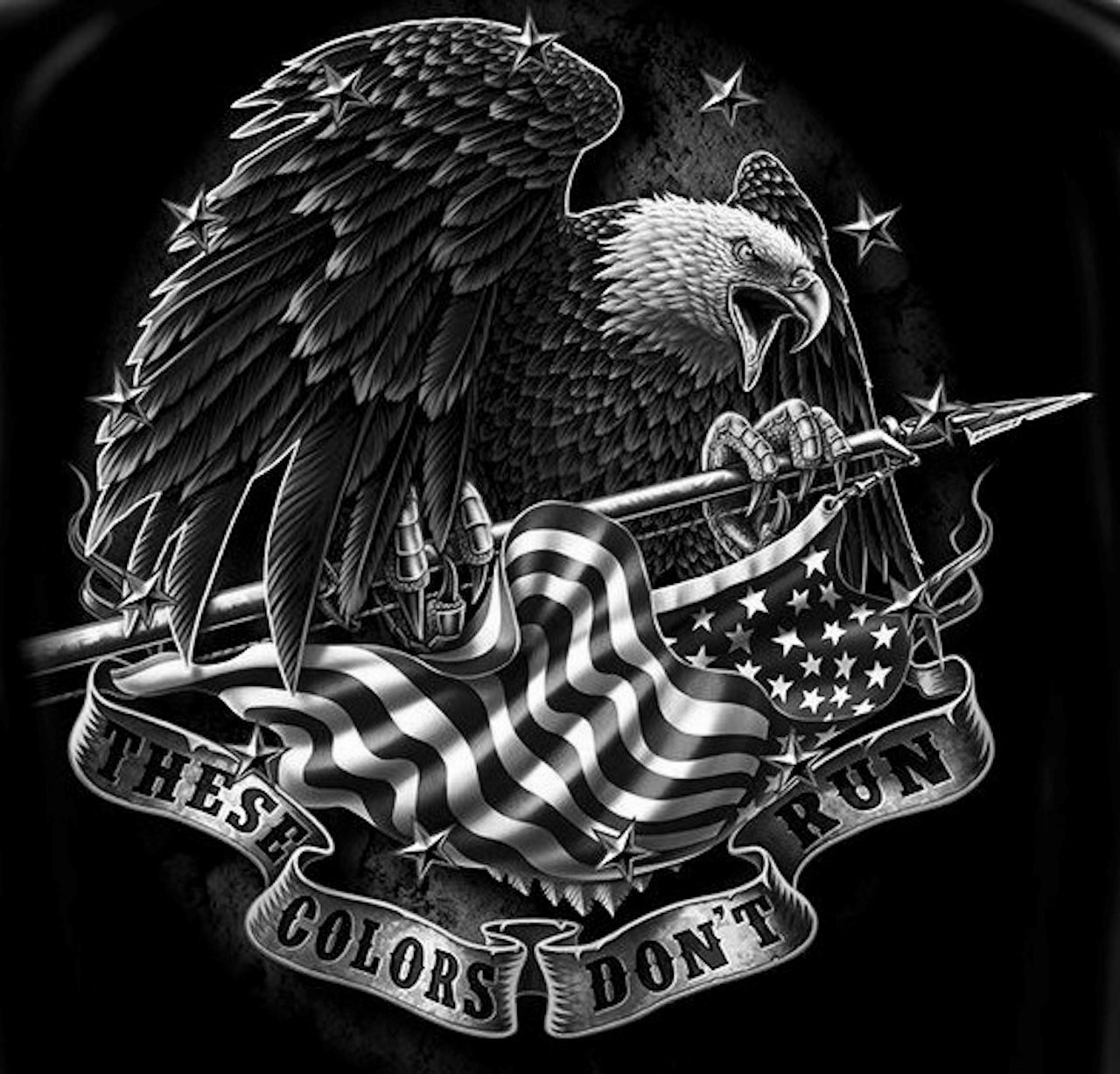Post-9/11 cultural wares have come in many forms, from seven-foot-tall American flags on suburban lawns to Jeff Dunham’s Achmed the Dead Terrorist. Somewhere in between lies the nebulous patriotic phrase “these colors don’t run.” The phrase has found its way onto bumper stickers, shirts, and other ephemera donned by people with aggressive attachments to national pride. It’s bombastic. But what does it mean?
You probably think that you know what it means. Do you, though? I would like you to try to explain it to the person nearest to you. Next, ask a different person to explain the phrase to you. Your answers, while likely to have similar notions of vague patriotism and bravery, will not be the same. The saying is as confounding as the popular adage “a bird in the hand is worth two in the bush,” a phrase that I have never found any use for in my life.
Do these colors not run?
Even people on the internet — where all of the world’s knowledge is collected — can’t agree on what it means or where it comes from. I found countless threads created by people like me, begging to be let in on the secret of “these colors don’t run.” Some were met with silence, like this desperate soul on phrases.org.uk. Others received mealy-mouthed guesses. Some were weirdly specific, but provided no evidence to back up their assertions. Besides, you can know the history of something and still not understand what it really means.
According to Greg Guy, a linguistics professor at New York University, “these colors don’t run” is simply a pun: “We speak of the colors in a fabric ‘running’ when they are washed — one color bleeds into another, or fades. And we speak of ‘running’ away from something. Similarly, colors can mean simply the colors of some physical object, but it’s also used to mean ‘flag’.”
Steven Hahn, an NYU history professor, thinks that the phrase’s origin comes from a 1960s critique of draft resisters who fled out of the U.S. A related connection, he said, is the idea that the colors of the flag don’t run in the face of a challenge: The U.S. doesn’t run from necessary wars.
The U.S. doesn’t run from necessary wars.
Surprisingly, Jeff Dunham fans don’t have a monopoly on colors not running. In an interesting turn of events, the phrase has been adopted by some on the “#resist” side. Others take advantage of its lack of a subordinate clause and turn the phrase on its head with modifications like “these colors don’t run but I do” and “these colors don’t run, they sashay.”
“These Colours Don’t Run” is also the title of an Iron Maiden song. It uses the British spelling because Iron Maiden is a British band. In this case, the title comes from an incident at Ozzfest 2005. Bruce Dickinson, the lead singer of Iron Maiden, had apparently upset some Ozzy Osbourne fans with disparaging comments about Ozzy’s use of a teleprompter. This prompted the crowd to wreak havoc on Iron Maiden’s performance by hurling eggs and bottles at the band, with one audience member running on stage with an American flag. In the heat of the rampage, Dickinson held up a British flag and said, “This is a fucking British flag, and these colours don’t fucking run!” A year later, Iron Maiden released “These Colours Don’t Run,” turning their Ozzfest egg attack into an anthem to the army.
So, “these colors” seem to depend entirely on context. When the context isn’t given as to what colors aren’t running, we have to infer. Next, the running. What are we, or these colors, not running from? “From ISIS?” asked one of my friends. Could be. Who knows? “These colors don’t run” is now a proverb, like the end of an Aesop’s fable, but it lacks the necessary qualification to make any sense at all.
For such a nonsensical phrase, it’s a wonder that so many different groups have formed an attachment to it. Not well-known enough to be in the cultural bank of idioms, but recognizable enough to produce a reaction within whoever reads it on the back of a truck. It’s a perfect representation of the hollowness of patriotism.
